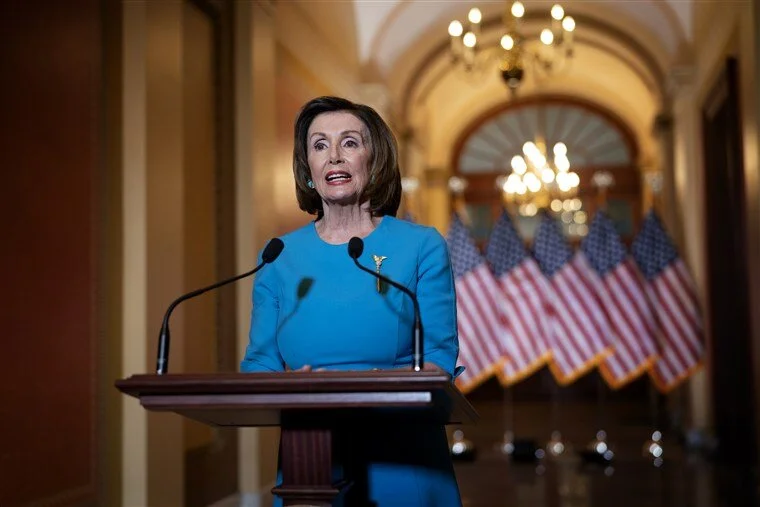U.S. adopts first ever paid family leave bill in response to COVID-19 By Luke Perry and Phillip A. Howard
Congress has passed two laws to provide assistance following the outbreak of COVID-19, and is now working on a third bill focused on economic stimulus. The second bill, The Families First Coronavirus Response Act (FFCRA), provided two weeks of paid sick leave, the first federal law of its kind.
The number of U.S. working parents has increased significantly in recent decades, though family leave policy has not kept pace. For instance, America is the only affluent country who does not offer paid leave for new parents.
12 states and the District of Columbia have enacted state/district family leave policies, including New York.
Photo by Susan Walsh/AP
FFCRA outlines specific guidelines for who qualifies for paid sick leave. Government workers and private businesses with 500 employees or less must provide up to two weeks of paid sick leave to infected workers or those caring for sick family members. The law also includes 12 weeks of paid leave for caretakers of children whose schools and/or childcare providers are closed.
There are exceptions for businesses with more than 500 employees, as well as healthcare workers and first responders. For employees at these companies, some 48 percent of the workforce in the United States, their future is uncertain.
Approximately 86 percent of these companies have paid sick leave, though few workers are eligible to take 10 days off. Some companies, such as Walmart and Amazon, have pledged to extend their sick leave policies.
Sen. James Lankford
Paid sick leave faced some opposition. Senator James Lankford (R-OK), one of eight Senators to oppose the bill, argued paid sick leave requirement puts too much of a burden on American businesses.
Businesses are “hearing the promise of a federal reimbursement coming to them,” Lankford explained, “but they don’t know when that’s coming and they’re literally teetering on the edge right now. Their struggle is ‘please don’t do something that pushes us over the edge.’”
Senator Rand Paul (R-KY) said that businesses “may not be around later on…They’ll either get rid of the workers early on so they don’t have to do the paid leave. The other thing is, you’ve got no income, you’ve got no taxes you’re paying and nothing to claw it back from.”
The European Union requires all its countries to provide a minimum of 14 weeks of paid maternity leave, two weeks of which is mandatory. Prior to FFCRA, just 17 percent of U.S. civilian workers had any type of paid family leave benefits.
Speaker Nancy Pelosi has said that House Democrats will require any upcoming stimulus bill to expand paid family leave.
Luke Perry (@PolSciLukePerry) is Professor of Government at Utica College
Phillip Howard is a graduate student at Utica College







